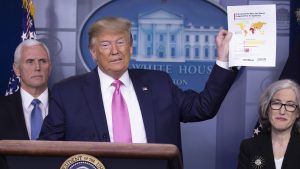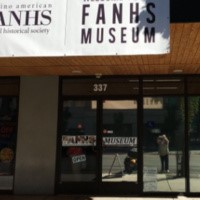PETER’S PINOY PATTER – APRIL 2020
(April 2020 blog)
Bridge Generation News
Morris Artiaga: BG Personality of the Month, Morris Artiaga, 79![]()
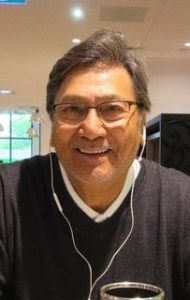 Morris was born on December 10, 1940 in Guadalupe CA, the last of four children of immigrants from the Philippine province of Cebu. I first remembered Morris after his family’s 1947 move to Stockton. At the time, he was an energetic little boy with unbridled curiosity about the activities of his teen-age brother Tony and pals. That energetic boy developed into an energetic teenager who played basketball on several Stockton Filipino Youth Clubs – the Fils and United Filipino Youth; then became an energetic young man when he served as chairperson of the successful Second Filipino Young Peoples Convention in Stockton in 1972.
Morris was born on December 10, 1940 in Guadalupe CA, the last of four children of immigrants from the Philippine province of Cebu. I first remembered Morris after his family’s 1947 move to Stockton. At the time, he was an energetic little boy with unbridled curiosity about the activities of his teen-age brother Tony and pals. That energetic boy developed into an energetic teenager who played basketball on several Stockton Filipino Youth Clubs – the Fils and United Filipino Youth; then became an energetic young man when he served as chairperson of the successful Second Filipino Young Peoples Convention in Stockton in 1972.
Morris’ education was primarily at Stockton public schools where he earned an AA degree from Delta College, and a BA from the University of Pacific, before getting a Masters in Community Development from neighboring University of California at Davis. Following his UCD graduation, he moved to Los Angeles to work for General Electric. He returned to Stockton to assume the position of Director of Program Development, Community Action Council of San Joaquin County and then for the City of Stockton where he served as Director of the Manpower Commission.
His biggest, most satisfying, and most challenging job was as Director, Filipino Multi-Service Center in Stockton in the early 1990s. Actually, the challenge came earlier. A Filipino agency funded by a multiplicity of government agencies faced possible defunding and closure. Morris called together a broad coalition of local Filipino organizations that redefined the agency’s purpose: “ to provide educational, employment, health, senior, and recreational services to the Filipino Community of San Joaquin County.” Their lobbying efforts proved successful, saving valuable funding to enable the provision of critical services for the Filipino community. Largely in recognition of his FMSC accomplishments, Morris was honored with a VIP Gold Award by the Filipino American National Historical Society in 1994. He gratefully says, “My success at the FMSC would not have been possible without the help of my second-in-command, Program Director Luna Jamero.”
Retired since 1998, Morris spends much of his time researching his family history as a genealogist, enjoying his family of five children and their children, and going on trips with Cindy, his wife of 40 years. He and Cindy are avid travelers having visited Australia, New Zealand, Iceland, the Czech Republic, England, the Philippines, and France. They have been to Paris at least twelve times, using it as their base for visits to Europe. The Philippines was perhaps Morris’ most personally satisfying. While there on a four month vacation in 1977 he was able to meet his paternal and maternal relatives in Cebu. He plans to again visit his ancestral home – provided the current coronavirus scare is resolved.
Flip Nunez

One of my loyal readers, who shall remain nameless, took me to task on my January feature story of the late jazz pianist/singer Joseph “Flip” Nunez for failing to include a number of his accomplishments. As a long-time friend of Flip’s, following is my attempt to do justice to his story:
Before gravitating to bop and straight-ahead jazz, Flip began playing professionally at age 17, working with R&B artists such as Big Jay McNeely and Joe Houston at clubs on Los Angeles’ fabled Central Avenue. During the 1950s, he continued to develop his chops by listening to and gigging with bopsters Dexter Gordon, Charlie Parker, Howard McGhee, and Carl Perkins. Later he backed singers Carmen McRae, Harry Belafonte, and Jon Hendricks; toured with legendary guitarist Wes Montgomery; and was a sideman with countless groups. Settling in San Francisco in1960, Flip became a fixture on the local jazz scene. He was in the house band at “Jimbo’s Bop City” in the Western Addition; had regular gigs at “Jigoku’s” in Japantown and the Meridian Hotel lounge on Union Square; he often appeared at “Jazz at Pearl’s” in North Beach as a soloist or accompanying singer Madeline Eastman. According to noted jazz drummer Vince Lateano,
“Flip was a natural with a great ear and could fit into any situation.”
Fond Farewell to Two BG Friends
Anthony Bucol
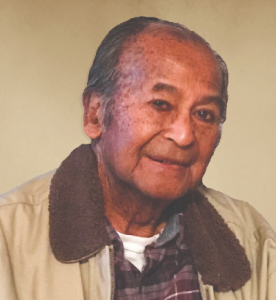
After a prolonged illness terminated his life on February 1, family patriarch Anthony Bucol, 91, was laid to rest on February 20 at the spacious San Joaquin Valley National Cemetery in Santa Nella, CA alongside fellow veterans.
Born on March 14, 1928 in San Leandro CA, Tony spent his early years in the East Bay before his family moved to the Central Valley town of Delhi in 1951. Like other young men of the times, Tony was drafted into the army during the Korean War. Typically quiet and unassuming, he conveyed great strength and courage after the death of each of his children Steve, Scott, and Nikki, giving comfort and solace to others. Tony was my kumpadre — the devoted ninong (godfather) to my daughter, Julie Jamero-Hada.
Violet (Reyes) Andrade
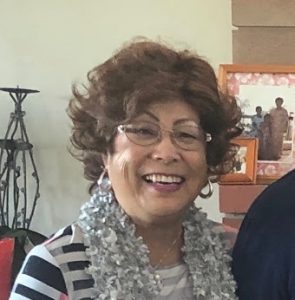 A crowd estimated at a thousand relatives and friends of Violet (Reyes) Andrade paid their final farewells on February 22 at the cavernous Harbor Light Church in Fremont CA.
A crowd estimated at a thousand relatives and friends of Violet (Reyes) Andrade paid their final farewells on February 22 at the cavernous Harbor Light Church in Fremont CA.
Vi, 83, was born on January 25, 1937 in Salinas CA where she resided before her marriage to Deceimo Andrade. They subsequently moved to Fremont CA where they raised five sons. Dec’s passing in 2009 left her as the sole parent for their sons. At Harbor Light she found spiritual direction for herself and her family. I’ve known Vi since we were teenagers. Always fun-loving and vivacious, Vi was a close friend of my late wife Terrie and mine.
Happy April Birthdays
-
-
-
-
-
-
-
-
- Mel LaGasca
- Patti (Monares) Greathouse
- Esther (Navarro) Romero
- Ray Paular
- Dolores (Rosales) Supat
- Art Villarruz
-
-
-
-
-
-
-
Pinakbet – News Across America
Tony Robles
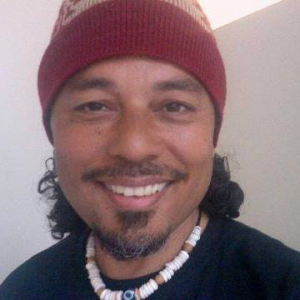 Last year writer/poet Tony Robles was named as Writer-in-Residence at the Carl Sandburg Home National Historic Site in Connemara, North Carolina. Robles considers his residency as an opportunity to honor the legacy of Carl Sandburg as a people’s poet. He also sees it as an opportunity to give something back to a community that welcomed him with warmth and graciousness. During his residency he will be working on a novel in progress Fillmore Flip — based on his family’s life in the Fillmore District of San Francisco.
Last year writer/poet Tony Robles was named as Writer-in-Residence at the Carl Sandburg Home National Historic Site in Connemara, North Carolina. Robles considers his residency as an opportunity to honor the legacy of Carl Sandburg as a people’s poet. He also sees it as an opportunity to give something back to a community that welcomed him with warmth and graciousness. During his residency he will be working on a novel in progress Fillmore Flip — based on his family’s life in the Fillmore District of San Francisco.
Juanita Tamayo Lott Endowment in Asian American Studies
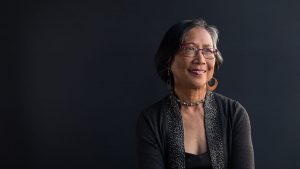 On Febuary 29 the University of Maryland’s Asian American Studies Program announced the establishment of the Juanita Tamayo Lott Endowment in Asian American Studies. Juanita, formerly of San Francisco and more recently of Seattle,established the endowment to focus federal policy on education
On Febuary 29 the University of Maryland’s Asian American Studies Program announced the establishment of the Juanita Tamayo Lott Endowment in Asian American Studies. Juanita, formerly of San Francisco and more recently of Seattle,established the endowment to focus federal policy on education
Fermin Tobera Tribute
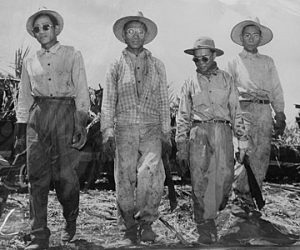 On February 22 Filipino Americans of Pajaro Valley celebrated their history at the California Agricultural Workers Center in Watsonville CA. The standing room only crowd took time to remember their contributions to this agricultural community.
On February 22 Filipino Americans of Pajaro Valley celebrated their history at the California Agricultural Workers Center in Watsonville CA. The standing room only crowd took time to remember their contributions to this agricultural community.
Of particular relevance was a heartwarming tribute to Fermin Tobera, the farmworker who was tragically killed by a rioting White mob of 500 in January 22, 1930.
Musings
(The eight month series on White Nationalism/Supremacy’s animosity towards People of Color is suspended because of the current global coronavirus outbreak that targets everyone.)
Coronavirus/COVID-19: A question of Leadership and Trust
Today, millions of Americans are complying with “stay-at-home” and “social distance” policies. But how did America get here?
May 2018 – Donald Trump eliminated the National Security Council’s Global Security Unit, demoting its pandemic experts. On March 13, 2020 nearly two years later, he said, “I didn’t do it. I don’t know anything about it.”
December 2019 – U.S. health officials warned Trump of COVID-19; he ignored it.
January 22, 2020 – Trump said he wasn’t worried, “Not at all. We have it totally under control.”
February 28 –Trump dismissed COVID-19 as a “hoax” perpetuated by Democrats.
February 29 — The first coronavirus-related death of an American on U.S. soil.
February — While other nations tested thousands, less than 500 tests were done in the U.S.
March – The respected Dr. Anthony Fauci, the nation’s infectious disease expert, called the testing program “a failing”.
March 13 – Regarding the testing debacle, Trump said, “I don’t take any responsibility at all.”
March 16 — Trump admitted the virus was “very bad”.
March — State governors and big city mayors instituted “stay-at- home” and “social distance” policies.
Trump’s failure to act decisively is considered to be due to recent dips in the stock market and concerns about his 2020 reelection. A related factor — Trump has rejected the traditional U.S. leadership role in global issues. Similarly, Trump turned to state and local governments for leadership in coping with COVID-19. As a result states were left competing with one another for personal protective equipment such as masks and ventilators.
There clearly has been a lack of national leadership in America’s response to COVID-19. If the pandemic is to be stopped, it will be because of experts, scientists, economists, governors, community leaders, business, non-profits, labor, and ordinary Americans who led the way – not Trump’s leadership. The Trump Administration has been unable and/or unwilling to provide it. Moreover, Trump’s contradictory and misleading policy positions have left Americans confused. We don’t know what to believe or whom to trust. There will be a time when we will see the consequences of the Administration’s bewildering slow response to COVID-19. In the meantime, we all can find comfort that together – despite the absence of national leadership – Americans are rising to the challenge of confronting this deadly disease. (see Time magazine, March 30 issue).
Filipino American Museum in Stockton, Funding Countdown – Now 1 year, 10 months with no action.
When will the Board of Trustees, Filipino American National Historical Society – that has program and fiduciary responsibility – provide critically needed financing to assure keeping open the FANHS Museum in Stockton, the historic center of Filipino immigration?
